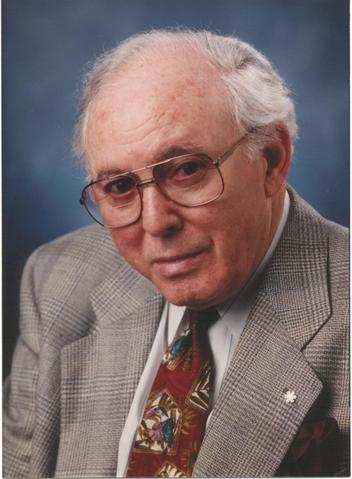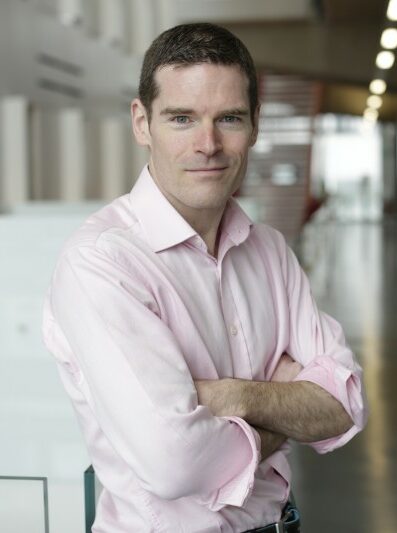39th Annual Feldman Lecture
October 18, 2024 | IN-PERSON EVENTDelta Hotels – Edmonton South Conference Center
Top of the Inn, 4404 Gateway Boulevard NW, Edmonton AB
Professor Oliver Howes
BM, BCh, MA, MRCPsych, PhD, DM, FMedSci
Schizophrenia: From Molecule to Management
Dr. Oliver Howes is a Professor of Molecular Psychiatry at King’s and Imperial Colleges, London, UK and Head of the Department of Psychosis Studies. He is also Consultant Psychiatrist at the Maudsley Hospital, where he runs a clinical service for people experiencing psychosis symptoms.
His past industry experience includes a period as Vice President for Translational Neuropsychiatry at Lundbeck A/S.
His research interests centre on the cause and treatment of psychosis. His recent work has focused on understanding the role of dopamine, GABA, glutamate, and neuroinflammation in the development of psychosis, the effects of antipsychotic drugs on the nervous and endocrine systems, along with the causes of cognitive impairment in schizophrenia.
He has published over 400 scientific papers, and his work has been recognised through a number of awards including the American College of Neuropsychopharmacology Award for Translational Research (2022), Royal College of Psychiatrists Researcher of the Year Award (2017), Schizophrenia International Research Society Rising Star Award (2013), European Psychiatric Association Biological Psychiatry Prize (2012), and the Royal Society of Medicine Psychiatry Prize (2010). The Web of Science named him one of the most influential researchers in the world over the last decade. He was elected as a Fellow of the Academy of Medical Sciences in 2020.
Plenary Sessions:
Plenary 1
In this talk, Professor Howes will classify the biological basis of psychotic symptoms and describe how current treatments work to address them. He will distinguish the biological pathways underlying treatment non-response.
Plenary 2
Professor Howes will demonstrate a systematic evaluation of non-response in clinical practice incorporating how to rule out pseudo treatment-resistance and address the role of clozapine in optimizing treatment.
Plenary 3
Professor Howes will describe the potential role of trace amine receptors, introduce muscarinic strategies to target schizophrenia and explain where new approaches will fit into a treatment pathway.
“Schizophrenia is a leading cause of global disability. A better understanding of the aetiology of the disease will aid the development of alternative therapeutic approaches.”
Overall Learning Objectives
Upon completion of this conference, participants should be able to:
- Summarize the biological basis for current treatments and why they fail.
- Demonstrate a systematic approach to treatment that optimizes outcomes.
- Describe new approaches to treatment and where they fit into the treatment pathway.
This event is an Accredited Group Learning Activity (Section 1) as defined by the Maintenance of Certification Program of the Royal College of Physicians and Surgeons of Canada. You may claim a maximum of 3.5 hours (credits are automatically calculated).
Agenda
Friday, October 18, 2024
8:00 am Mountain Time
In-person Event
Delta Hotel – Edmonton South Conference Centre
| Time | Event |
|---|---|
| 08:00 – 09:00 | Registration and Continental Breakfast |
| 09:00 – 09:10 | Tribute to Zane Feldman Welcome and Introduction of Professor Oliver Howes |
| 09:10 – 10:00 | Plenary 1 – Examining the Biological Clues for the Treatment of Schizophrenia: Why D2 Blockers Don’t Work |
| 10:00 – 10:20 | Question and Answer Period |
| 10:20 – 10:50 | Health Break |
| 10:50 – 11:40 | Plenary 2 – Top Tips for Addressing Antipsychotic Treatment Resistance |
| 11:40 – 12:00 | Question and Answer Period |
| 12:00 – 13:15 | Lunch |
| 13:15 – 14:05 | Plenary 3 – Novel Treatment Approaches: Looking Beyond D2 Blockers and Clozapine |
| 14:05 – 14:25 | Question and Answer Period |
| 14:25 | Closing Remarks |

Zane Feldman
Zane Feldman made a significant donation to the Department of Psychiatry at the Edmonton General Hospital (now the Grey Nuns Community Hospital) in 1981 in gratitude for the care extended to his two sons. This donation created The Feldman Lectures which began in 1983.
Mr. Feldman was born in Winnipeg in 1923, the son of Israel and Rose (Frank) Feldman. He served in the RCAF and moved to Edmonton in 1949. He had a taxi business before becoming a partner in Crosstown Motor City and later President of West Edmonton Chrysler. Active in the sports community, Zane Feldman was President of the Edmonton Oil Kings and founder and governor of the original Edmonton Oilers in the WHA. He was a director of the Alberta Cancer Board for two years and played a key role in the acquisition of the land for the new Beth Israel Synagogue in West Edmonton. He was the recipient of the Order of Canada Medal in 1992 and was the Negev Dinner honoree in 1993. Mr. Feldman died in 2003 at the age of 80.
Past Feldman Lecture Distinguished Presenters
1983-2022
1983
Dr. Paul E. Garfinkel, M.D., F.R.C.P. (C)
Professor and Vice Chairman, Department of Psychiatry, University of Toronto
"Selecting an Antidepressant"
1984
Dr. Heinz Lehmann
Professor Emeritus, Department of Psychiatry
McGill University Montreal
"Schizophrenia - Psychiatry's Evergrowing Problem"
1985
Dr. David Sheehan
University of South Florida, Tampa, Florida
"The Anxiety Disease", "The Biology of Panic"
1986
Dr. Hagop S. Akiskal, M.D.
Professor of Psychiatry, The University of Tennessee, Memphis
"Interaction of Psychologic and Biologic factors in the Origin of Mood Disorders",
"The Soft Bipolar Spectrum - Clinical and Social Significance"
1987
1988
Dr. Harold Mersky
Professor of Psychiatry, University of Western Ontario, Director of Education and Research, London Psychiatric Hospital
"The Idea of Hysteria" "Pain and Compensation" "An individual Perspective on the abuses of Psychiatry in the USSR" "Psychological aspects of Pain"
1989
Professor Sir Martin Roth
University of Cambridge, Department of Psychiatry, Adenbrooke's Hospital, Cambridge, England
"Some Contemporary Growing Points in the Study of Alzheimer's Disease" "Travelling Between Doubt and Certainty in Medicine and Elsewhere" "Use and Abuse of Benzodiazepines"
1990
Norman E. Rosenthal, M.D.
Chief, Unit of Outpatient Studies, Clinical Psychobiology Branch, National Institute of Mental Health, Bethesda, Maryland
"Epidemiologic and Seasonal Changes in the General Population" " What We Know about the Physiological Underpinnings of Seasonal Changes" "Diagnosis of SAD and all its Variants" "Treatment of Seasonal Affective Disorder - Light and Beyond"
1991
Dr. Marie Asberg
Karolinska Institute, Department of Psychiatry and Psychology, Karolinska Hospital, Stockholm, Sweden
"Psychobiology and suicide - can we close the gap between Psychodynamic and Biological Models?"
1992
Dr. Bessel A. van der Kolk
Chief, Erich Linderman Mental Health Centre Trauma Clinic, Massachusetts General Hospital, Harvard Medical School
"Dissociation, Trauma and Psychiatric Illness"
1993
Dr. C.B. Nemeroff
Head, Department of Psychiatry & Behavioural Sciences, Emory University, Atlanta, Georgia
The Biology, Diagnosis & Treatment of Affective Disorder
1994
Dr. Robert M. Post
Biological Psychiatry Branch, National Institute of Mental Health, Bethesda, Maryland
Affective Disorders
1995
Dr. Sheldon Preskorn
Department of Psychiatry, University of Kansas School of Medicine, Psychiatric Research Institute, St. Francis Regional Medical Centre
Wichita, Kansas
Update on Antidepressants
1996
Dr. Philip Seeman
Department of Psychiatry, University of Toronto
Schizophrenia and dopamine receptors; Atypical antipsychotic drugs; Future Research and medications
1997
Dr. Norman Sartorius
President, World Psychiatric Association
Head, Mental Health Division, WHO (1997-1993)
“Mental Health and Primary Health Care”, “The Current State of Psychiatry”, “Comorbidity in Psychiatry”
1998
Dr. Glen Gabbard
Bessie Walker Callaway Distinguished Professor of Psychoanalysis and Education, Karl Menninger School of Psychiatry and Mental Health Sciences. The Menninger Clinic, Topeka, Kansas
“Psychodynamic Therapy in a Era of Neuroscience”
“Treatment of Depression Comorbid with Personality Disorders”
“Psychotherapy of the Chronically Suicidal Borderline Patient”
1999
Dr. Michael F. Myers
Clinical Professor, Faculty of Medicine, UBC
St. Paul’s Hospital, Vancouver, B.C.
“Mental Health in Physicians and Allied Professionals”
2000
Dr. Heidi L. Heard
Behavioural Technology Training Group, University of Washington
Behavioral Research and Therapy Clinics, Department of Psychology Seattle, WA
“Dialectical Behaviour Therapy”
2001
Dr. Harold Sackheim
Chief, Department of Biological Psychiatry New York State Psychiatric Institute
New York
“Update on Electroconvulsive Therapy”
2002
Dr. Shitij Kapur
Chief, Department of Biological Psychiatry
New York State Psychiatric Institute, New York
“Linking biology, phenomenology, and Pharmacology in Schizophrenia”
2004
Dr. Roger D. Weiss
Associate Professor of Psychiatry, Harvard Medical School, Clinical Director, Alcohol and Drug Abuse, Program, McLean Hospital
"Treatment Strategies for Patients with Substance Abuse and Dual Diagnosis"
2005
Lt.-Gen. Romeo Dallaire
Meritorious Service Cross, Commander of the 1st Canadian Divisiono, Deputy-Commander of the Canadian Army.
“A Personal Experience with PTSD”
2006
Dr. John W. Newcomer
Professor of Psychiatry and Medicine at Washington University School of Medicine in St. Louis. Medical Director for the Center for Clinical Studies at Washington University
“Atypical Antipsychotics: Metabolic Effects”
2007
Christine A. Padesky, PhD
Distinguished Founding Fellow, Academy of Cognitive Therapy, Co-Founder Center for Cognitive Therapy
“A New Paradigm for Cognitive Therapy of Personality Disorders”
2008
Arthur Caplan, PhD
Emanuel & Robert Hart Professor of Bioethics, Chair of the Department of Medical Ethics and the Director of the Centre for Bioethics at the University of Pennsylvania – Philadelphia
“Is it Ethical to seek to enhance ourselves and our children using biomedical knowledge?”
2009
Dr. Kenneth Kendler
Director, Virginia Institute for Psychiatric and Behavioral Genetics.
“Psychiatric Genetics: A Current Perspective”.
2010
Dr. Martin Seligman
Fox Leadership Professor at the University of Pennsylvania,, Philadelphia, Pennsylvania.
“The Nature & Science of Happiness”
2011
Dr. Arya Sharma
Professor of Medicine & Chair for Cardiovascular Obesity Research and Management, University of Alberta
"Obesity – Assessment & Treatment"
2012
Stephen Michael Stahl, M.D., Ph.D.
Department Of Psychiatry, University Of California – San Diego
“Neuropsychopharmacology of Atypicals”
2013
Baroness Susan Greenfield B.A. (Hons); M.A.; D. Phil
Oxford University, United Kingdom
"Are Digital Technologies Impacting on Wellness of Young Minds”
2014
Kay Redfield Jamieson, PhD
Professor of Medicine, Johns Hopkins University School of Medicine Baltimore, Maryland
"An Overview of Mood Disorders & Suicide"
2015
Jeffrey Lieberman, MD
Lawrence C. Kolb Professor & Chairman, Psychiatry, Columbia University Medical Centre - New York
"Schizophrenia: Past, Present & Future"
"Shrinks - The Untold Story of Psychiatry"
2016
David Nutt, MD
Edmond J. Safra Chair, Psychopharmacology Imperial College, London, England
"Research of Drugs that Affect the Brain & Conditions such as: Addictions, Anxiety & Sleep"
2017
Philip Cowen, BSc, MB, BS, MD, FRCPSYCH
Professor, Psychopharmacology - University of Oxford, Oxford, England, United Kingdom
Classification of Depression & Implications for Treatment
2018
Laurence J. Kirmayer, MD FRCPC FCAHS, FRSC
James McGill Professor & Director, Division of Social & Transcultural Psychiatry, McGill University - Montreal, Quebec
"Integrating Culture & Context in Theory & Practice in Psychiatry"
2019
Dr. Judy Cameron, PhD. University of Pittsburg
Dr. George Koob PhD. Bethesda, MD
Dr. Stephanie Covington PhD, LCWS, La Jolla, California
"The Brain Story"
2020
Cancelled
2021
Cancelled
2022
Professor Mark Edwards MBBS, BSc (Hons), PhD, FRCP, FEAN
King’s College, London, UK
“Functional Neurological Disorders”
2023
Professor Anna Lemke MD
Stanford University School of Medicine
“Dopamine Nation: Finding Balance in the Age of Indulgence”
